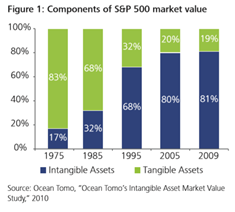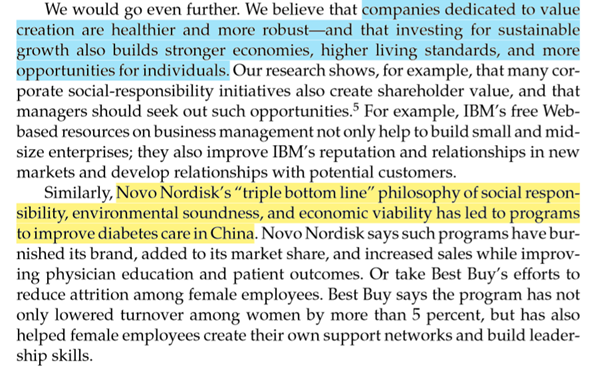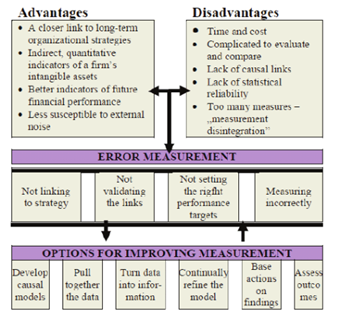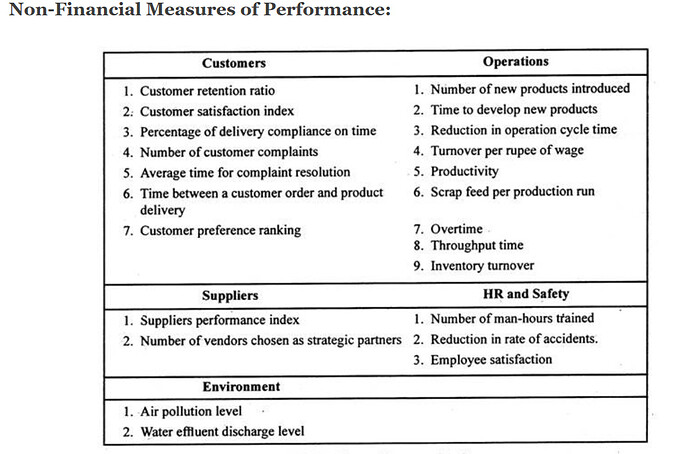I try to find out the related topic in VP but not able to find one .I request moderators to kindly move this if already existing topic in this regards .
The recent trend that business leaders have called for companies to change their focus from increasing shareholder value to a broader focus on all stakeholders, including customers, employees, suppliers, and local communities . Creating shareholder value is not the same as maximizing short-term profits. Companies whose short-term focus leads to environmental disasters also destroy shareholder value, not just directly through cleanup costs and fines, but via prolonged reputational damage.
We chose most of the time a company based on our query in the screener like ROIC>15% or promotors stack>30% or ROE >25 or Q2Q profit growth >15% and some many financial ratios we take as per our understanding of the stock market and our financial or practical knowledge of the Marcos or Micros of economics but what I feel that most of us neglect an important aspect of the company i.e Non-financial indicators of a company . “To me financial data have limitations as a measure of company performance in long run .”
Markets do a great job with public information, but markets are not omniscient. Markets cannot price information they don’t have. Think about the analogy of selling a house. The seller may know that the during rain the street get water logged or in the night there are lots of Dogs are in the street or that some of the pipes that are inside the walls are not off good quality or the windows are a bit draftee or there is colony of cockroaches in the kitchen which come in night . Unless the seller discloses those facts, it may be very difficult for a potential buyer to detect them, even with the help of a professional builder or house inspector.
Environmental, social and governance (ESG) performance; resource efficiency; business model resilience; innovative capacity; brand strength and corporate culture that can be just as informative on how a business is creating value. As per KPMG International Survey of Corporate Responsibility Reporting 2011 Of the 250 largest companies in the world (G250 companies), 95 percent now issue separate sustainability reports.

Why these are important
- The actual drivers of success in many industries are “intangible assets” such as intellectual capital and customer loyalty.
- In contrast to financial indicators of company, non-financial indicators are much more difficult for a company to hide or to cover. These indicators tend to be real-time events that give us immediate information.
- Financial evaluation systems generally focus on annual or short-term performance against accounting yardsticks. These have closer link to long-term organizational strategies.
- investments in research and development or customer programmes or training programmes for vendors are accounted in the period when they have occurred but the results can be long term that is the effort for future value creation.
- Financial measures are implausible to capture fully the many extents of organizational performance
Case :
During a 2004 drought in the Indian state of Kerala, the local government revoked Coca-Cola’s license to operate and ordered the company to shut down its $25 million plant. In the United States, college students began boycotting Coke products. At its peak, the plant filled approximately 1.1 million bottles a day and injected more than $50 million a year into the Indian economy. After a two-year trial, Coca-Cola convinced a court that drought was to blame for the dry wells and not the company, which was drawing water from a different aquifer. Coca-Cola has since established itself as an industry leader on water management. Nevertheless, the Kerala case presents a long-tailed risk: the bottling plant remains shut and, in 2011, the local government passed a law holding Coca-Cola liable for $48 million in damages to the local community

The Global Reporting Initiative (known as GRI ) is an international independent standards organization established to provide guidelines one can check here
For more information:
Ballow J.J. (Ballow J.J. et.al., 2004) thinks that intellectual capital is composed of three parts: relations capital, organization capital and human capital . The authors have marked clients’ loyalty, quality of offered contracts, etc. as the indicators characterizing relations capital. In authors’ opinion, organization capital has the following indicators – reputation, structural opportunities, etc., but human capital is described by such indicators as staff loyalty, employees’
I am sharing excepts from the book VALUATION MEASURING AND MANAGING THE VALUE OF COMPANIES sixth edition


How to develop non-financial KPI https://www.cgma.org/content/dam/cgma/resources/tools/downloadabledocuments/how-to-develop-non-financial-kpis-cgma.pdf
I request fellow VP and seniors to share their insight and cases where they find it the company 's are involve in creation of value through non financial indicators or decreasing the value by discouraging the KPI
regards

